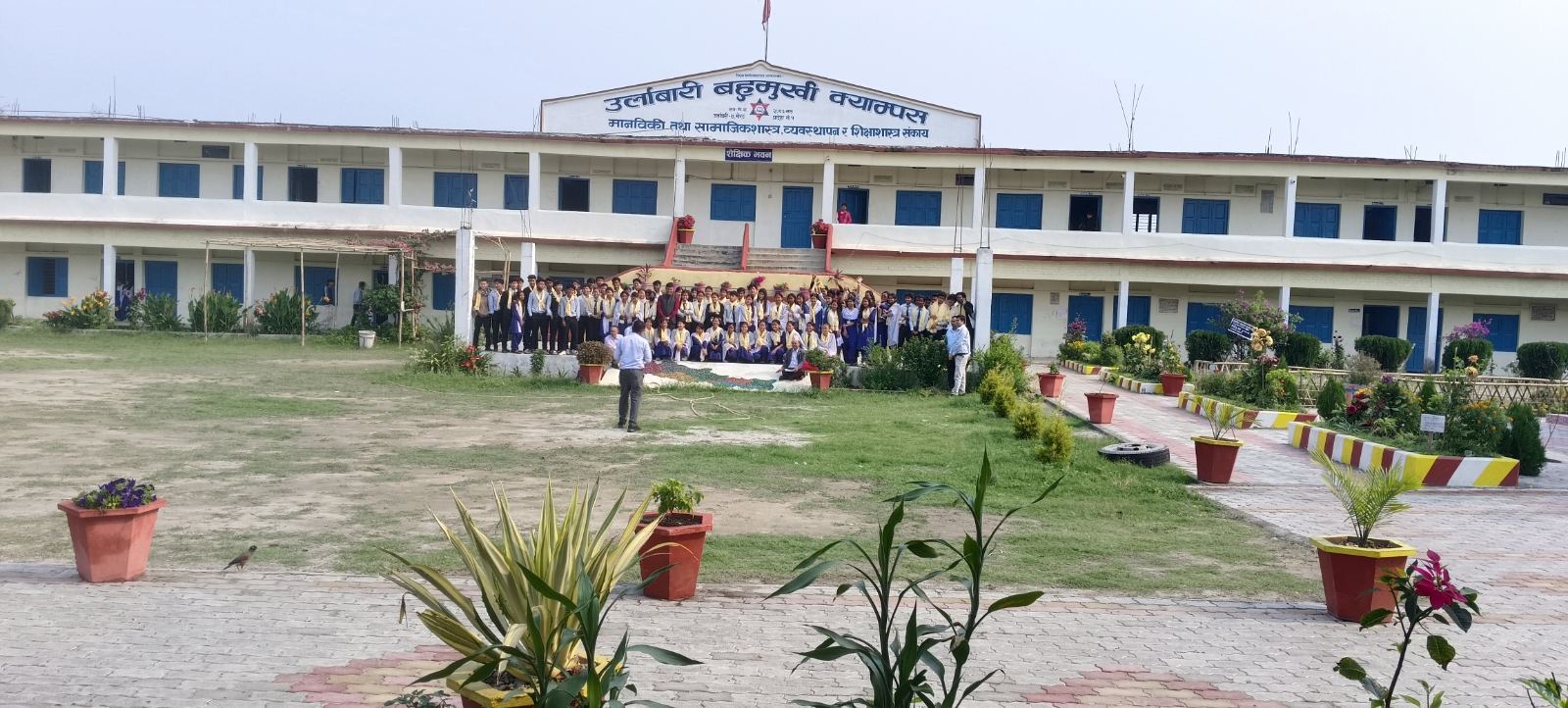Overview
MA in Rural Development at Urlabari Multiple Campus
A student interested in creating positive change in rural communities, the MA in Rural Development at Urlabari Multiple Campus, Morang, offers a path grounded in real-world needs and long-term social development. This course, affiliated with Tribhuvan University, aims to help students understand rural societies and their development needs.
Highlights
-
Affiliated with Tribhuvan University
-
Located in Urlabari, Morang
-
Two-year semester-based program
-
Designed for students from humanities, education, or development backgrounds
-
Focus on practical and academic understanding of rural development

Curriculum Details
The MA in Rural Development follows Tribhuvan University’s official semester-wise structure. It is a two-year (four-semester) postgraduate program that combines theory, fieldwork, and research. The curriculum encompasses courses in rural economy, governance, gender, sustainability, statistics, research methods, and other related subjects.
Here’s a quick overview:
First Semester:
-
Principles and Practices of Rural Development
-
Rural Economy of Nepal
-
Rural Sociology
-
Statistical Methods in Rural Development
-
Development Theories
Second Semester:
-
Gender and Development
-
Rural Development Planning
-
Natural Resource Management
-
Rural Institutions and Leadership
-
Project Planning and Management
Third Semester:
-
Governance and Development
-
Sustainable Agriculture
-
Rural Infrastructure Development
-
Research Methodology
-
Elective I (student choice)
Fourth Semester:
-
Thesis or Internship Report
-
Elective II
-
Seminar on Rural Development Issues
Objectives
-
Develop a critical understanding of rural development concepts and practices.
-
Prepare students for research, planning, and leadership roles in a rural setting.s
-
Equip students with interdisciplinary tools to assess and address rural issues.
Scope
The program prepares students for roles in government development offices, NGOs, INGOs, cooperatives, and rural enterprises. Graduates also pursue careers in teaching, research, policy-making, and local governance. With further study, opportunities in international development and academic institutions may become available.
Learning Outcomes
By the end of the program, students will be able to:
-
Analyze rural problems using social, economic, and environmental frameworks
-
Conduct independent research on rural development issues
-
Design and evaluate rural development programs and policies
-
Contribute to community planning and participatory development
Skill Development Modules
-
Qualitative and Quantitative Research
-
Project Planning and Evaluation
-
Leadership and Community Mobilization
-
Field-based Learning and Case Studies
Teaching Methodology
Teaching includes lectures, seminars, group discussions, field visits, presentations, and practical assignments. Students work closely with faculty and communities to link academic learning with ground realities. Final-year students choose between writing a thesis and preparing a report based on a field internship.
Admission Requirements
-
Bachelor’s degree in any discipline recognized by Tribhuvan University (preferably in humanities, education, or development studies)
-
Fulfillment of application and entrance procedures as per TU and Urlabari Multiple Campus guidelines
Career Opportunities
-
Rural Development Officer
-
Project Coordinator in NGOs and INGOs
-
Policy Analyst
-
Researcher in social and development studies
-
Teaching roles in academic institutions
-
Local governance and community leadership positions
Scholarships and Financial Aid
Urlabari Multiple Campus participates in various government and community scholarship programs for Dalit, Janajati, minority, and disadvantaged students. Partial tuition waivers are also available, based on both merit and financial need. Students can inquire directly with the administration for current scholarship options.
Why Choose This Course?
Students from rural or semi-urban areas often seek meaningful careers close to their communities. This course provides them with a structured path to study real-world problems and develop solutions. The field-focused approach, local faculty support, and practical modules make it especially suitable for students who want to make a positive impact in rural Nepal.
Conclusion
The MA in Rural Development at Urlabari Multiple Campus is more than a degree—it is a pathway to understanding rural societies and contributing to their progress. With academic depth and community connection, the course is relevant, accessible, and timely for students who want to serve their country through informed action.

















